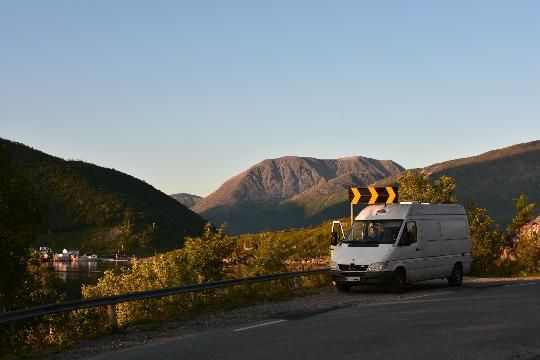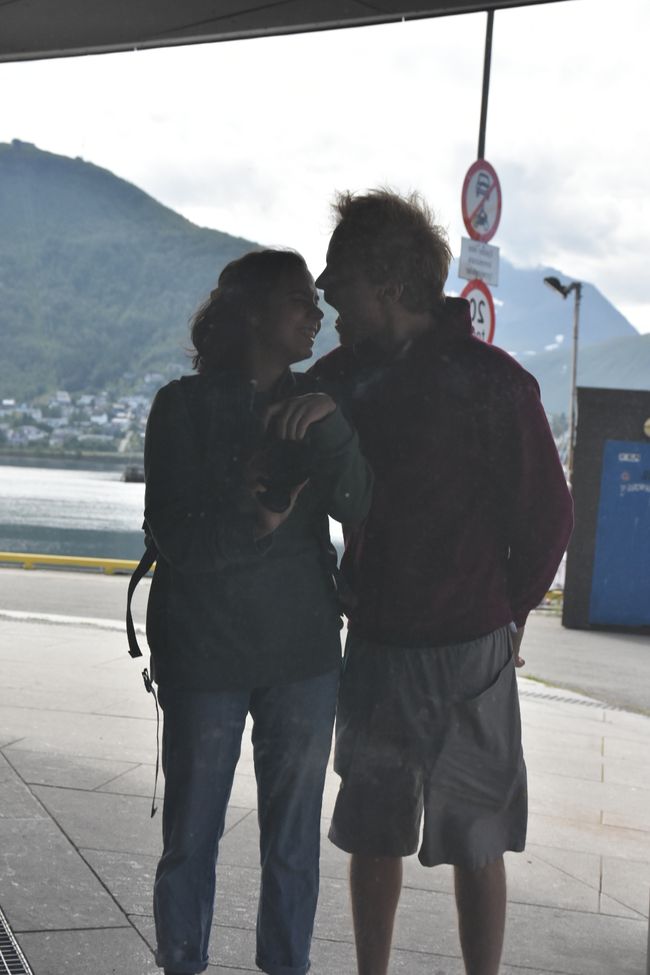Tag 67 & 68 - Who you gonna call? Myth busters!
Publicēts: 03.12.2018
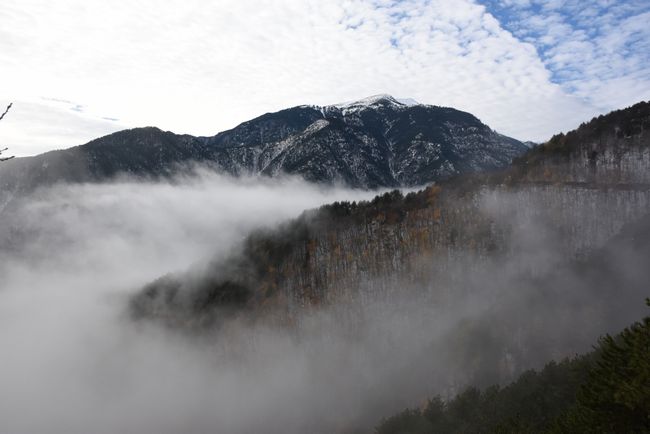
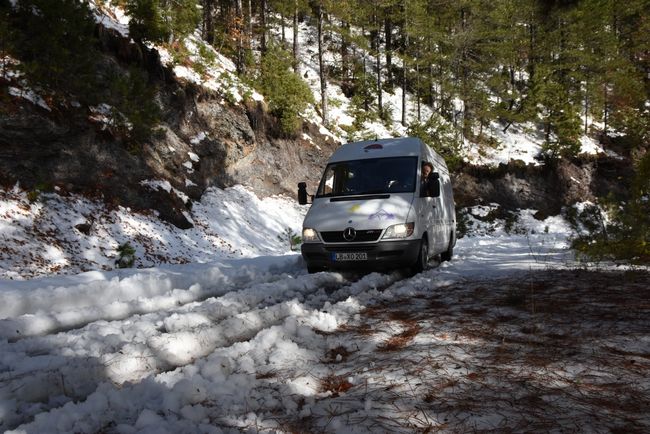
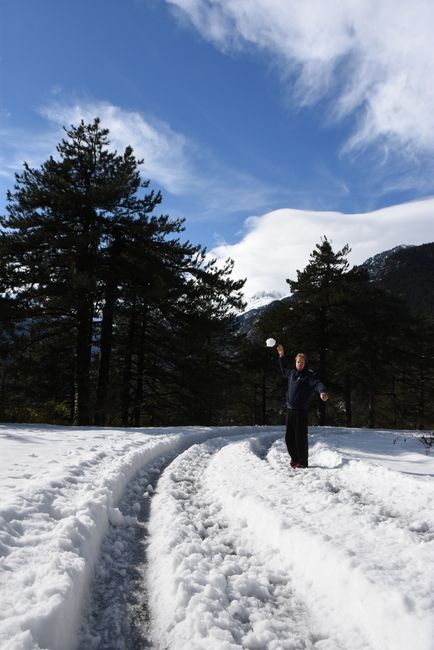
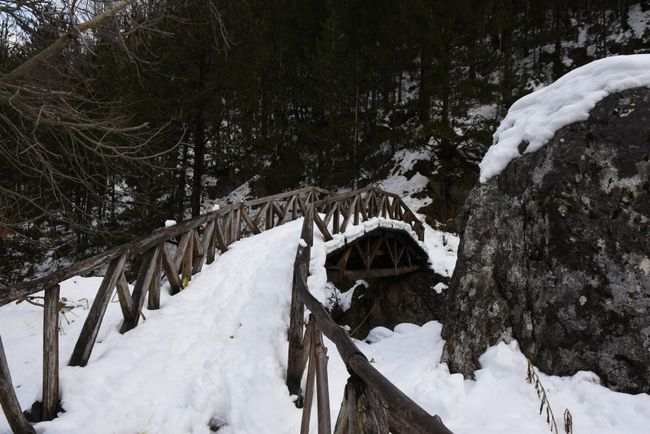
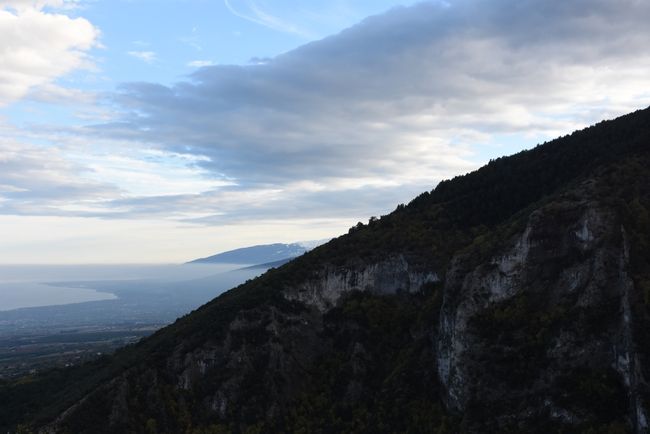
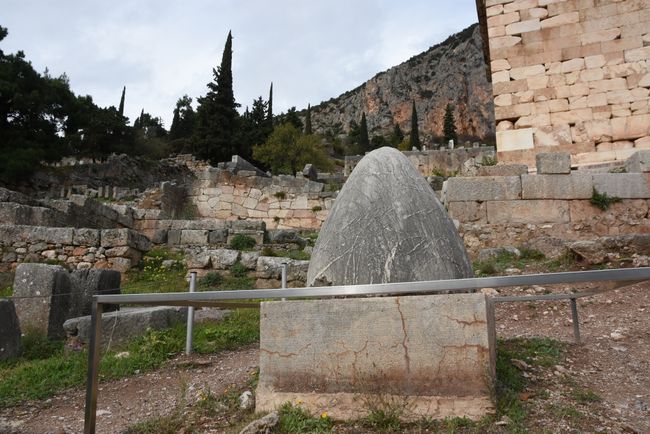
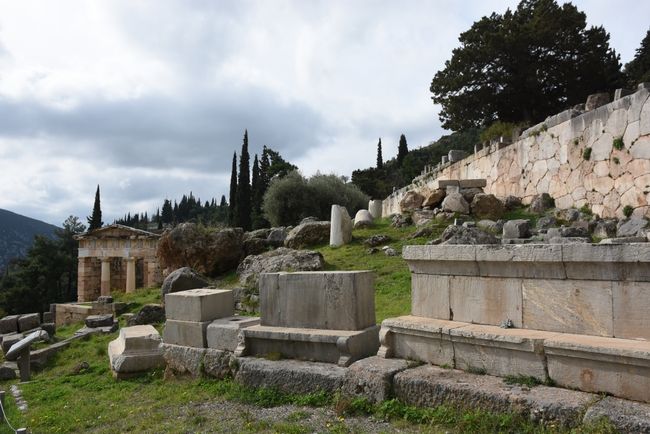
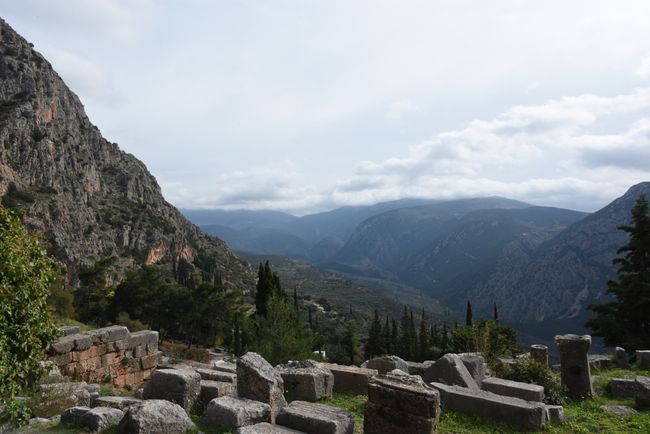
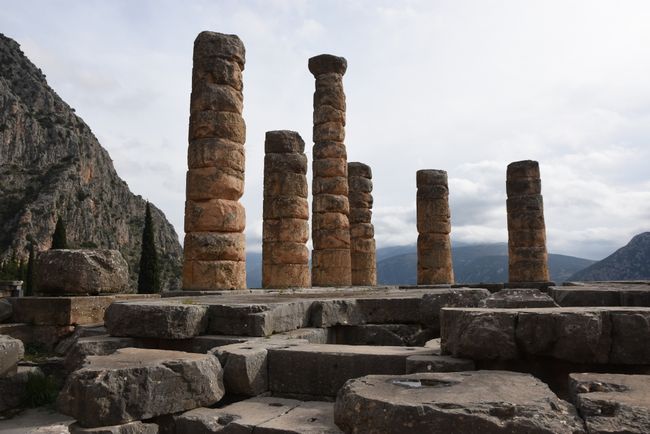
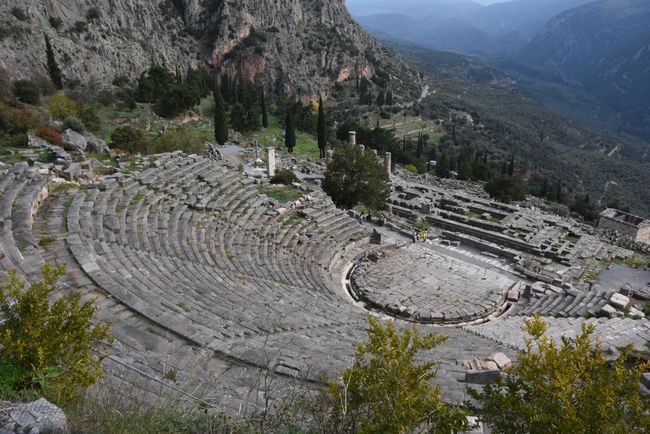
Abonējiet biļetenu
Open the van door. It's early in the morning and the sun is making its way through the olive grove. Some street dogs bark in the distance, your own steps sink lightly into the damp meadow. It is cool, but the sky is radiant blue and in the distance a snow-covered peak is already visible. The perfect day for a hike!
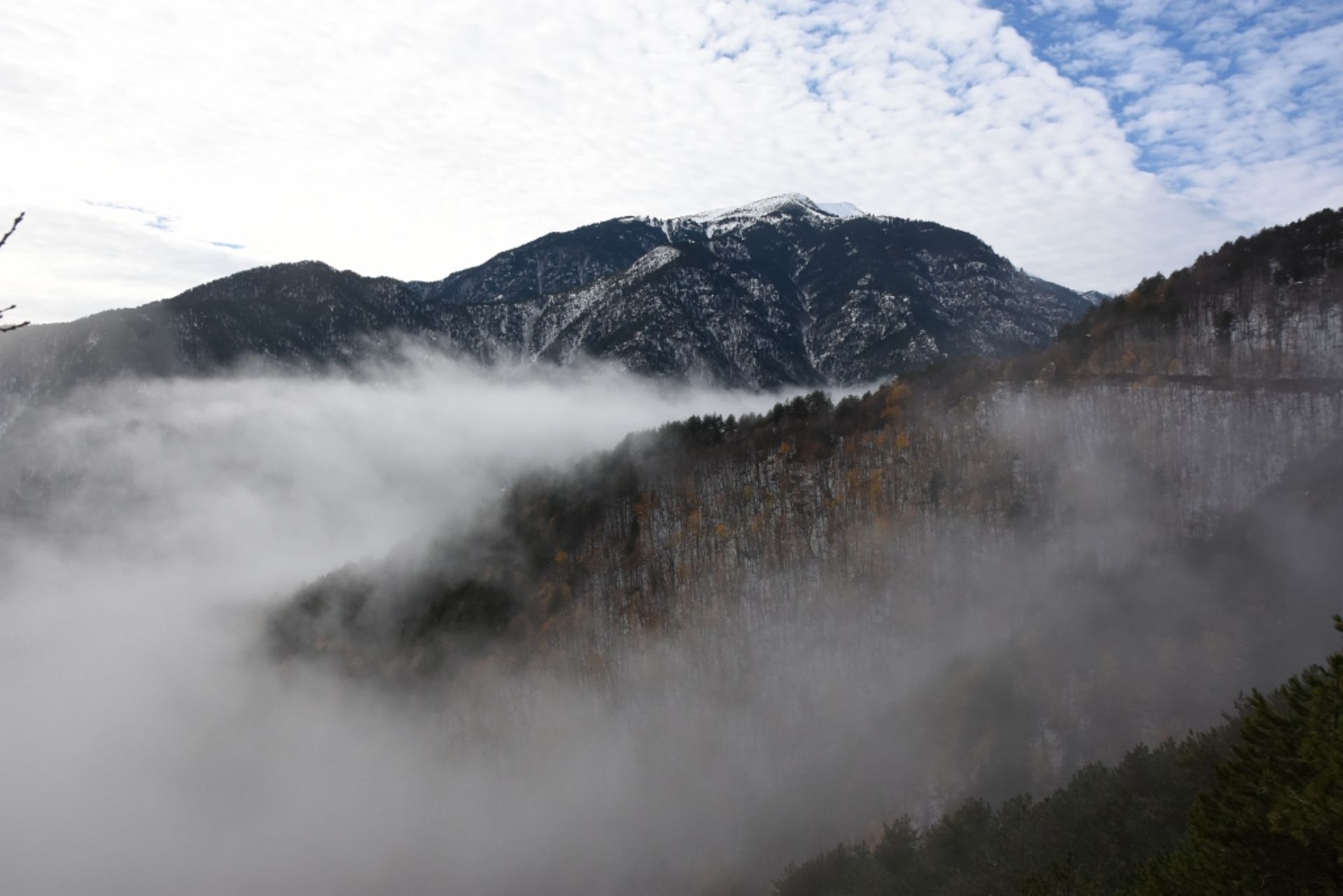
The perfect day for a hike?
Maybe we should have been suspicious at this moment. But at the latest when we passed the snow line during the drive up and could only move on in two tracks, we should have seriously reconsidered our plan.
Actually, we only wanted to drive to the starting point of our hike, a small village halfway up Mount Olympus. We weren't worried, after all, we didn't want to climb the summit, just take a nice, but easy circular tour. Okay, we knew that our starting point, Prionia, was already at an altitude of 1300 meters, that it had been raining a lot in the last few days, and that it was winter. But we were in Greece to spend the winter there - who could expect snow!
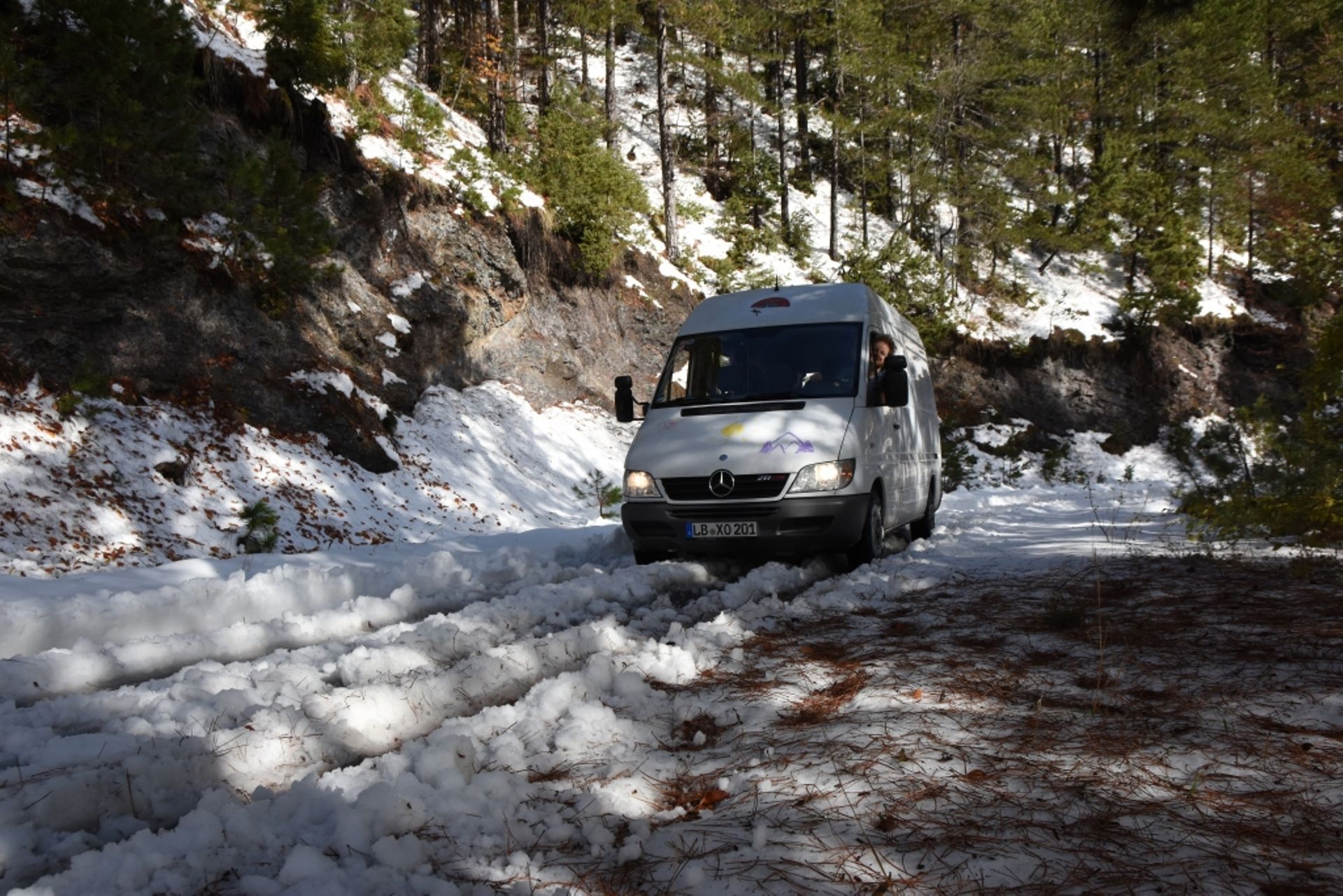
You may have guessed it. We didn't turn around or park in time and ended up getting stuck. But really stuck. Our underbody scraped on the dense layer of snow, the wheels spun and we were stranded on this lonely mountain road, unable to move forward or backward. We had no choice but to use our dishes (in flip-flops) to clear the road enough that we could drive back down a few hundred meters in reverse after an hour and finally park. Which, by the way, we did with "joy", because in the meantime we had seriously feared that we would have to spend the night on the spot - until the snow melted in spring or someone would rescue us.
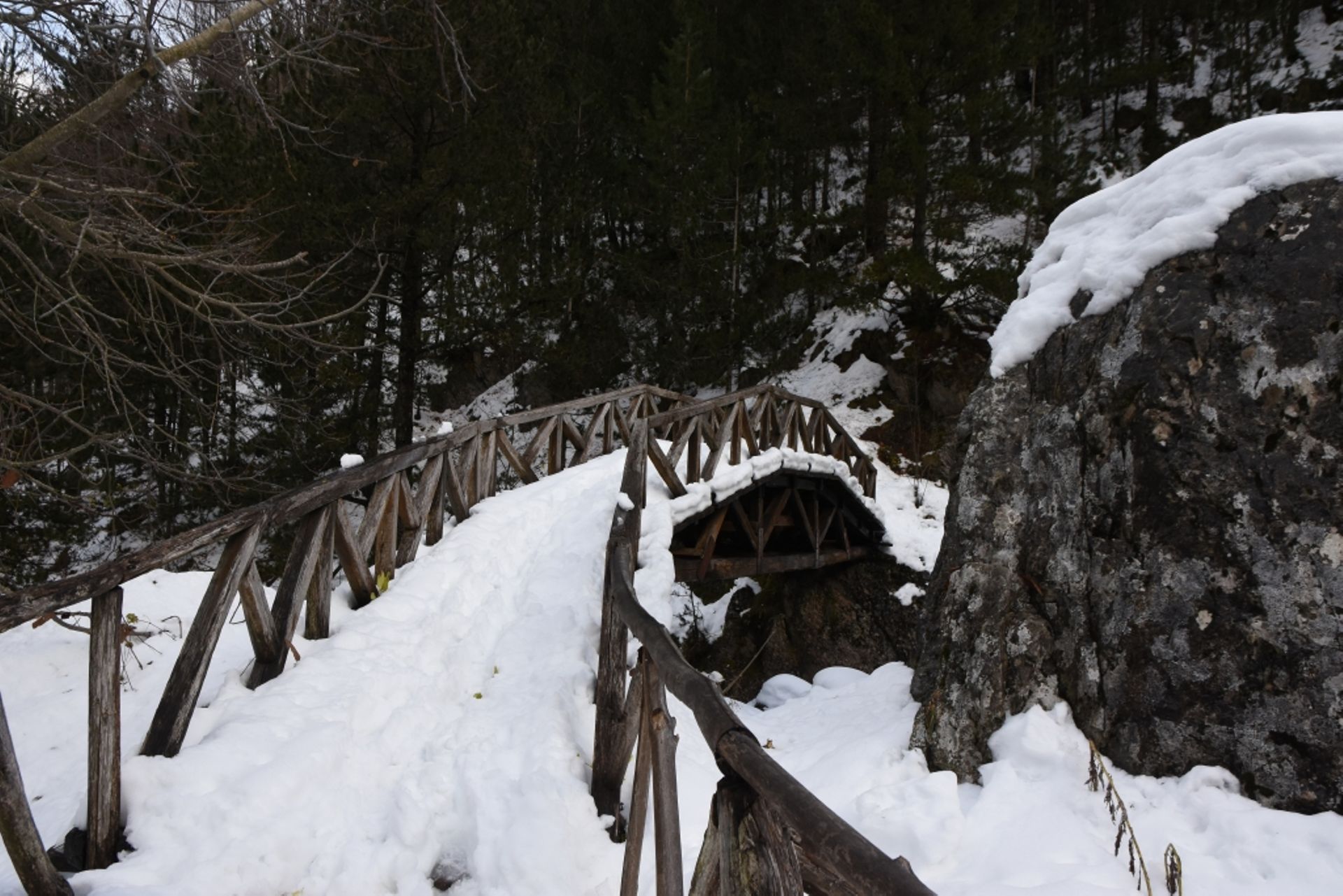
Out of pure stubbornness, instead of going on the advertised circular hike, we set off to at least reach its still 6 kilometers away starting point. Thanks to the use of flip-flops and a couple of dead toes, our running shoes (for exactly 3 meters) were still dry and we happily stomped up the snow-covered road. The route was still quite nice, we had an interesting conversation with a hermit collecting herbs and reached Priona and our circular hiking trail in the middle of a snow cover of about one meter. Here, due to lack of equipment, we finally gave up and returned to our heated Gretchen and shortly afterward to warm and dry areas. "Adventure is just a romantic expression for difficulties" (Peter Becker).
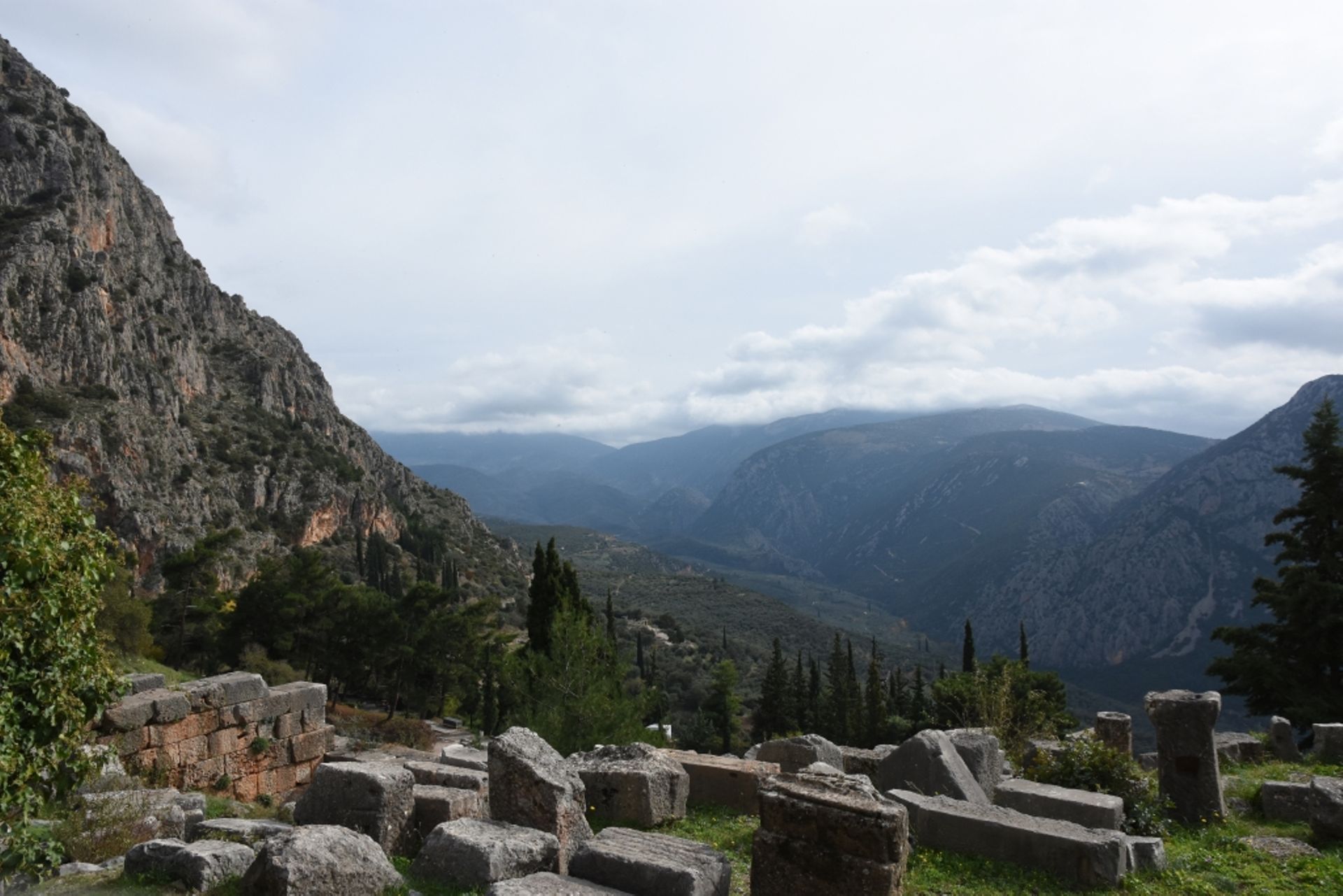
Less adventurous, but no less exciting, our journey continued the next day when we visited the Oracle of Delphi. As you stroll through the ruins, here a pillar, there a few stones, you admittedly need a little imagination to imagine that this place was once the navel of the world. The oracle dedicated to Apollo received countless pilgrims every day from 600 to 400 BC and influenced the development of the ancient world. It is not without reason that the ancient Greeks saw the Omphalos - the stone that Zeus allegedly used to mark the center of the world - in a stone with a peculiar shape found there.
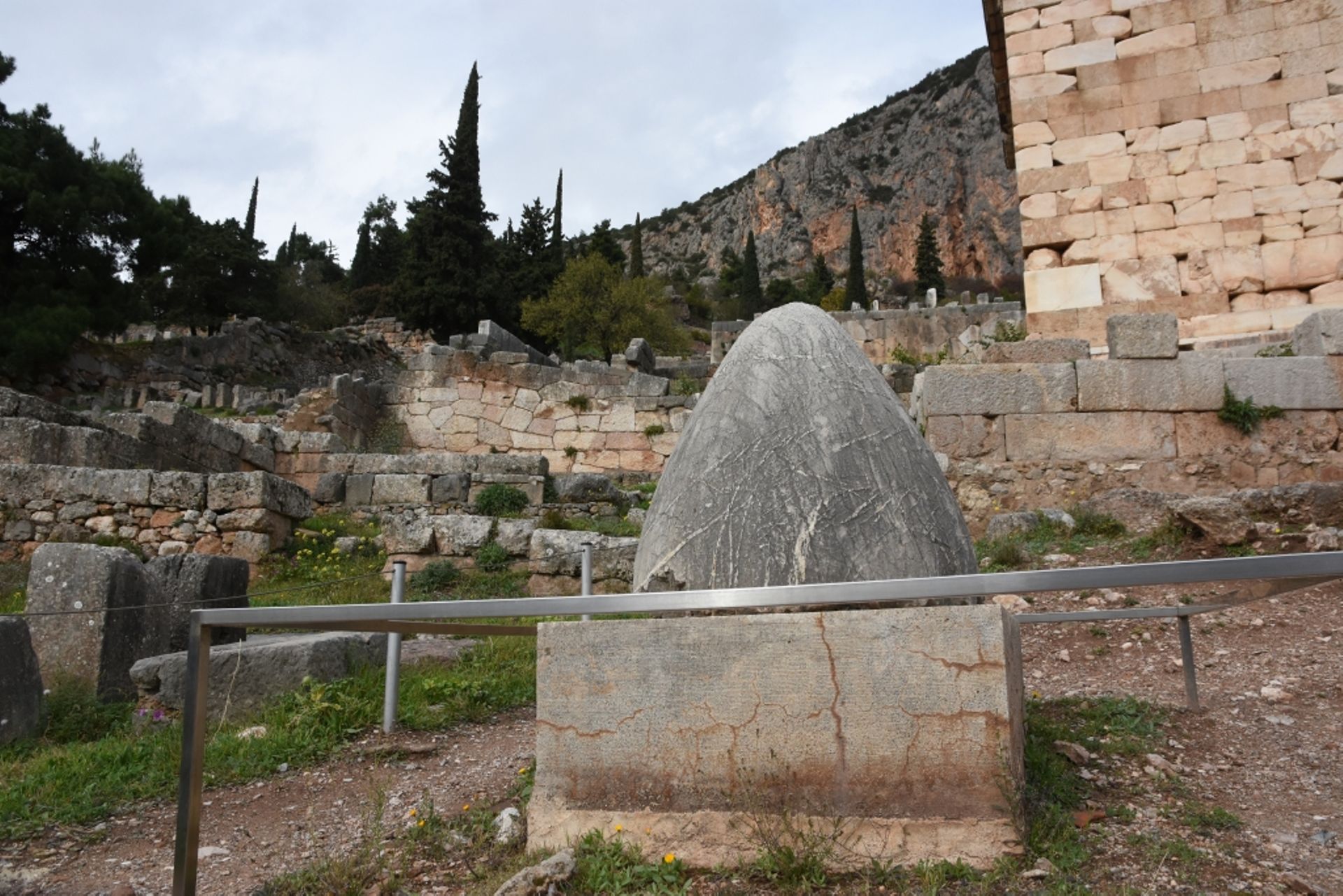
The Oracle of Delphi enjoyed such a position of power mainly due to the skilled priests who helped the temple gain more and more significance over time. The site had more to offer than just the oracle itself. There was a market where smaller votive offerings could be purchased, treasure houses filled with offerings from wealthy families and victorious cities who offered a part of their loot. The oracle even had its own theater and stadium. Every four years, the Pythian Games were held, during which athletic, but also musical (Apollo is among other things the god of music) competitions took place.

The center, of course, was the Temple of Apollo itself. The oracle was located inside. After presenting an offering, the questioners passed on their request to the priests. The actual oracle, however, was the Pythia, a virgin beyond the age of 30 who was exposed to gases presumably emanating from the earth in a chamber and - in simple terms - proclaimed her judgment while being quite high. The more or less understandable oracle was then "translated" by the priests of Apollo for the questioners.
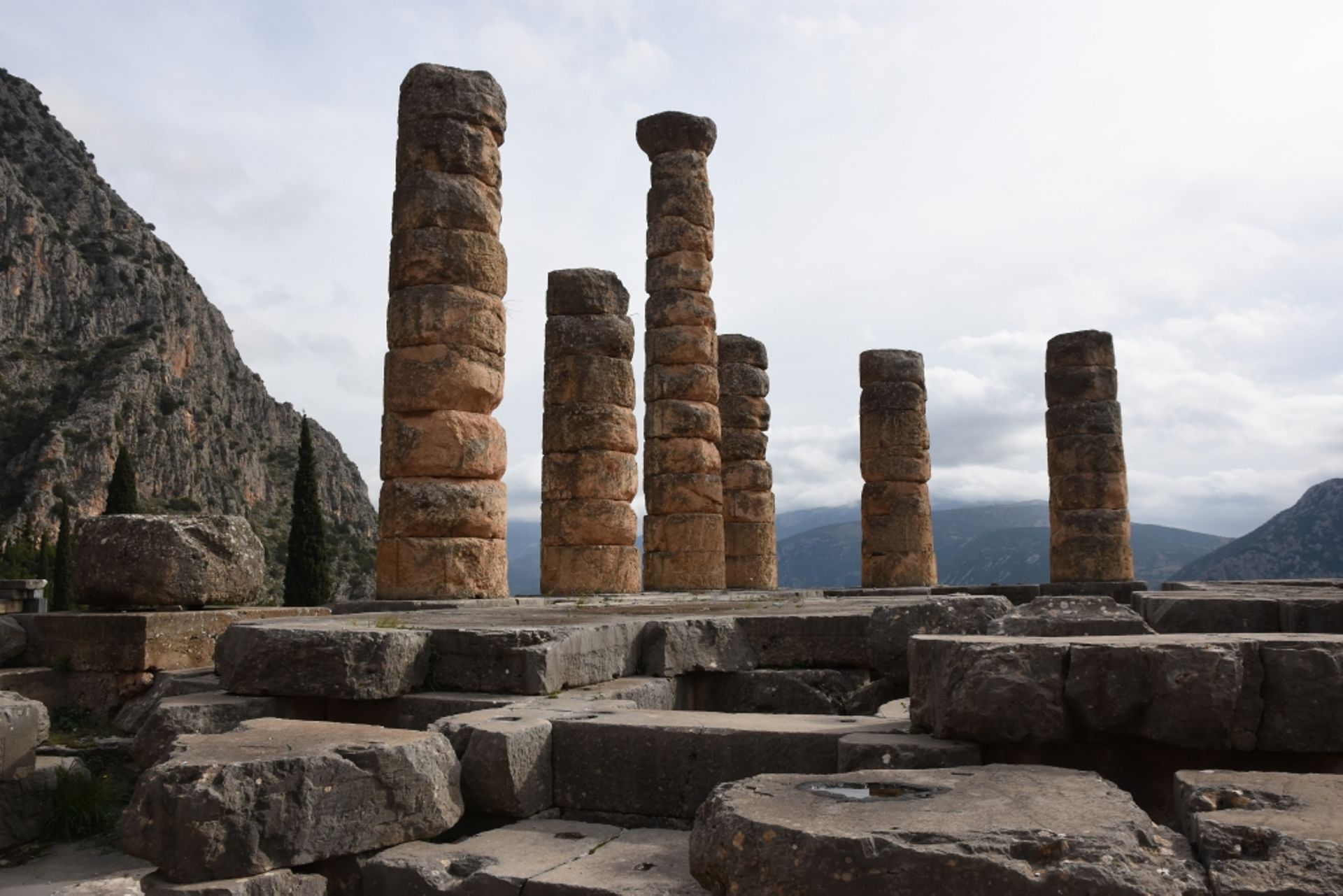
What is impressive is that the priests often turned out to be right. On the one hand, they made use of ambiguous statements. The story of King Croesus, for example, is famous, who was prophesied that a great empire would perish before his war against the Persians - only in the end it was unfortunately his own. On the other hand, the priests also cleverly used their knowledge and wealth. They had informants in all parts of the empire. The oracle became an important political factor and thus had an incomparable position. Although there were other oracles in ancient Greece, they remained politically insignificant and were more concerned with personal matters. But based on the prophecies from Delphi, wars were started, won, and lost. Even Alexander the Great is said to have consulted the oracle.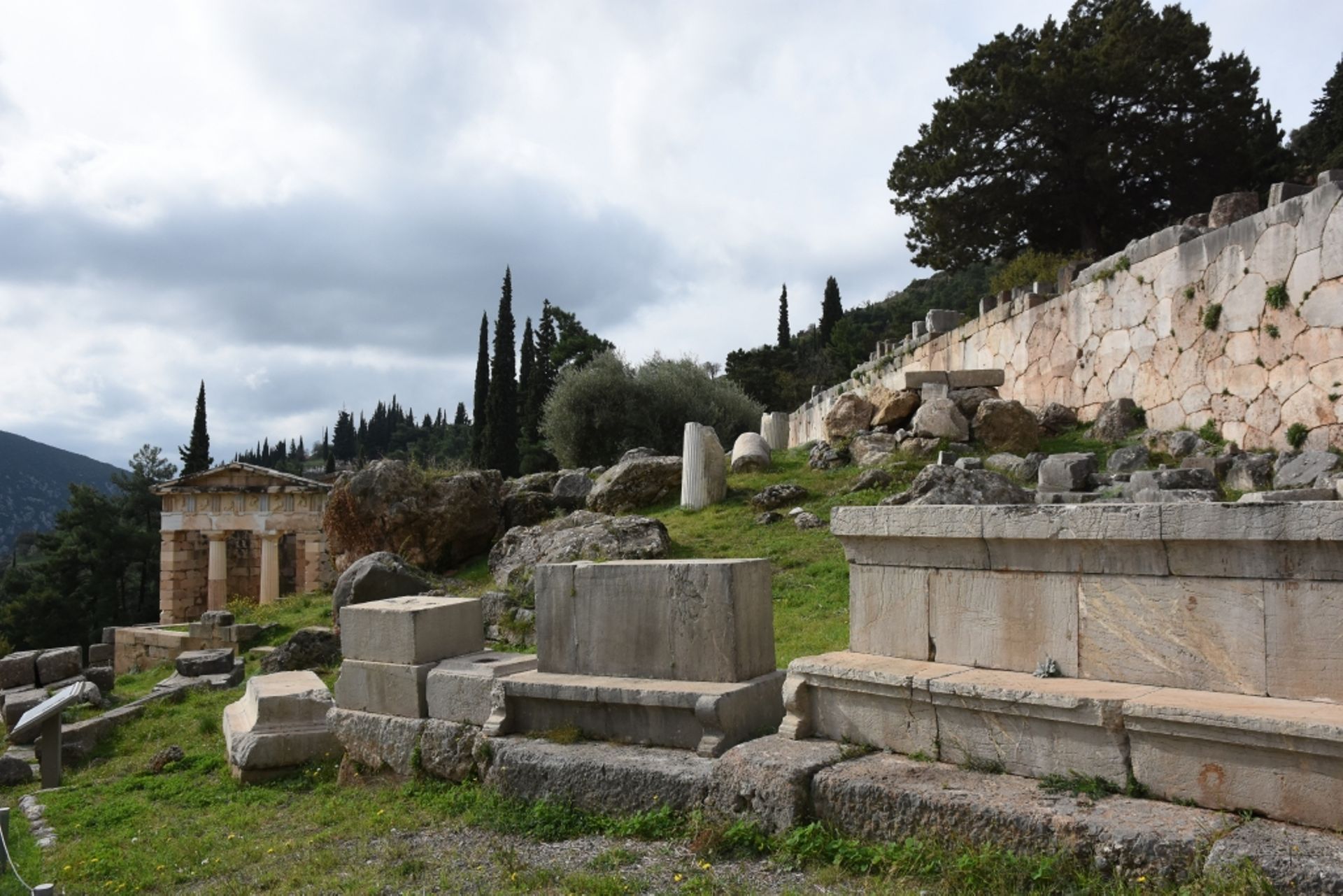
Only after the rise to power of the Romans and the spread of Christianity did the oracle lose more and more of its religious and economic significance.
Today, we can still admire the remains of this huge and once so important site. If you consider what moved the pilgrims back then (as today) - wars, politics, but also very personal questions - and how much a religion could intervene in the fortunes of the (then) world, you can feel very close to the ancient Greeks even without much imagination.
In this sense: philosophize on!
Abonējiet biļetenu
Atbilde
